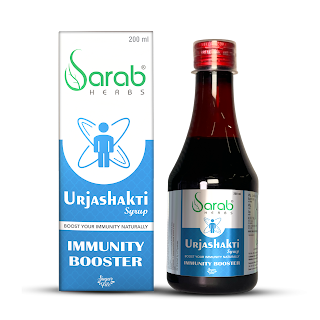Achyranthes Aspera: A Versatile Medicinal Plant
- Sarab Herbs
- Aug 3, 2024
- 3 min read
Achyranthes aspera, commonly known as prickly chaff flower or "Apamarga," is a perennial herb that has been revered in traditional medicine for centuries. Known for its remarkable healing properties, this plant is found across tropical Asia, Africa, and other parts of the world. Its versatile applications make it a staple in Ayurvedic, Unani, and other traditional medicinal systems. In this blog, we will explore the fascinating world of Achyranthes aspera, its health benefits, and how you can incorporate it into your wellness routine.
Achyranthes aspera belongs to the Amaranthaceae family and is characterized by its erect, wiry stem, greenish-white flowers, and elongated leaves. The plant thrives in a variety of climates, from dry, arid regions to more humid environments. Its resilience and adaptability make it an easily accessible remedy for many.
Traditional Uses of Achyranthes Aspera
Historically, Achyranthes aspera has been utilized for its medicinal properties in several cultures:
Ayurveda: In Ayurvedic medicine, Achyranthes aspera is used to balance the Vata and Kapha doshas. It is believed to possess anti-inflammatory, diuretic, and expectorant properties.
Unani Medicine: In Unani practices, the plant is valued for its ability to treat kidney stones, respiratory issues, and digestive problems.
Folk Remedies: Various folk traditions have used Achyranthes aspera to address a range of ailments, from fever and asthma to snake bites and skin infections.
Health Benefits of Achyranthes Aspera
The diverse health benefits of Achyranthes aspera are attributed to its rich phytochemical composition, which includes alkaloids, saponins, and flavonoids. Here are some of its notable benefits:
Anti-Inflammatory Properties: Achyranthes aspera is known for its ability to reduce inflammation, making it effective in treating conditions like arthritis and joint pain.
Digestive Aid: The plant's digestive benefits help alleviate constipation, indigestion, and other gastrointestinal issues.
Respiratory Health: Its expectorant properties make it useful in treating coughs, colds, and asthma by clearing respiratory passages.
Kidney Health: Achyranthes aspera is often used to treat kidney stones and promote overall kidney function due to its diuretic effects.
Wound Healing: The antimicrobial properties of the plant aid in the healing of wounds and prevent infections.
How to Use Achyranthes Aspera
Achyranthes aspera can be used in various forms, depending on the desired therapeutic effect:
Decoction: A decoction of the plant's roots and leaves can be consumed to improve digestion and respiratory health.
Paste: Applying a paste made from the leaves on wounds and skin infections can expedite healing.
Powder: Dried and powdered Achyranthes aspera can be taken with water or honey to address urinary and digestive issues.
Juice: Extracting juice from the fresh plant can serve as a natural remedy for coughs and colds.
Achyranthes Aspera in Modern Wellness
With the rise of holistic health practices, Achyranthes aspera is gaining popularity among wellness enthusiasts seeking natural remedies. Its potential in managing lifestyle-related health issues is being explored, making it a promising addition to modern herbal medicine.
SarabHerbs®: Embracing Nature’s Bounty
At SarabHerbs®, we believe in harnessing the power of nature to enhance well-being. Our range of products includes premium-quality Achyranthes aspera supplements designed to provide the benefits of this incredible herb in a convenient form. Whether you are seeking to support your digestive health, improve respiratory function, or simply boost your overall vitality, our products are crafted to meet your needs.
By choosing SarabHerbs®, you are not only investing in your health but also supporting sustainable practices that respect the environment. Experience the wonders of Achyranthes aspera with SarabHerbs® and embark on a journey towards natural wellness.











Comments